Ringneck and Alexandrine parrots are intelligent, curious and social birds that can make excellent pets in the right home. Many are very playful and vocal. Ringneck parrots are available in a wide range of colour mutation. As with all pet birds, it is important to provide them with proper diet, housing and socialization to ensure their physical and mental well-being.
Sexual dimorphism (a visual, physical difference between males and females) is evident in mature ringnecks when male individuals form a ring at the base of the neck. The ring usually forms after or around 18-24 months of age. Before this, they can be difficult to sex visually, which is where DNA or endoscopic sexing comes in. DNA sexing is generally preferred and can be performed by taking a drop of blood from your parrot.
Males and females of either species can make excellent pets, and the sex of the bird doesn’t generally impact how good of a pet they will make.
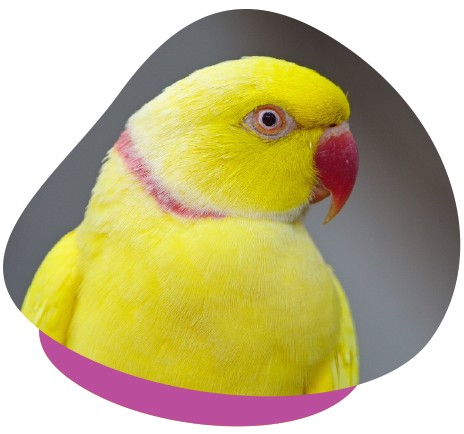
Diet Guidelines for Ringneck and Alexandrine Parrots
Every bird has different dietary requirements, so for your tailored dietary plan, please get in touch with us. General guidelines for Ringnecks and Alexandrine Parrots can be found below:
- 40-70% premium commercial parrot pelleted diet.
- 10-35% vegetables (recommended vegetables include: capsicum, broccoli, chilli, carrot, zucchini, squash, spinach, pumpkin, sweet potato, beans and peas).
- 10-20% fruits (i.e. melons, strawberries, bananas, blueberries, grapes, peaches, pears, apples). Please ensure that all stone fruits and apples are free of their seeds.
- 0-15% quality commercial seed mix and sprouted seed.
- 1-2% snacks for training and as treats (unsalted nuts (i.e. macadamia, cashew and walnut), pasta, eggs and brown rice.)
Regular time outside in the sun provides vitamin D for your bird – this vitamin is very important for your birds health and improves calcium absorption. Having a small cage that your bird can spend supervised time outside in is a simple way to provide your bird with vitamin D. Vitamin and mineral supplements are unnecessary if you are feeding a balanced diet and providing access to sunlight (not through a window).
Housing
We advise a good quality powder-coated or stainless steel cage of an appropriate size. Some painted cages contain lead elements that can be toxic to your bird, so please take care when selecting your cage. Cages that have been galvanised with a zinc coating can also cause problems, so please choose carefully.
Feeding Bowls
Stainless steel or ceramic bowls are generally recommended as these materials are not porous, making cleaning easier and more effective. Plastic bowls can become porous after a while and can cause problems if bacteria build up in these areas.
Perches
Perches of various sizes are important for exercising the toes and feet health. They also help to promote the natural wear of their toenails. Natural perches from native trees are ideal as they generally vary in size, providing a variation for your parrot.
Please do not provide string or rope toys, as they often fray over time and can cause gastrointestinal obstruction if swallowed.
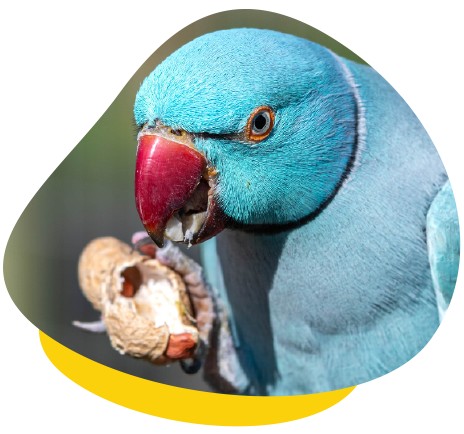
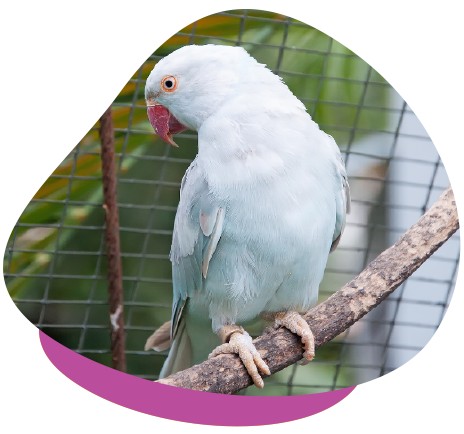
Training and Enrichment
Environmental enrichment and foraging is highly recommended and encouraged. Simple things like utilising cardboard toilet rolls to hide food can provide entertainment for many birds, but your veterinarian make further recommendations to help keep your bird busy. Positive reinforcement training is strongly recommended for all companion parrots.
Sleep
It is important that your bird gets enough sleep, as long-day light exposure can stimulate excessive moulting and increased reproductive activity. We recommend you keep to the natural winter day length, with around 12 hours of ‘dark’. If your bird is kept inside in a well-lit area, then you can cover the cage when the sun goes down and place them in a dark room to ensure that their day length is optimal.
Common Conditions
Reproductive and Behavioural Problems
Reproductive diseases such as egg binding, chronic egg laying, oviduct impaction and prolapse are also quite common. Destuctive feather plucking, aggression, excessive vocalisation and separation anxiety are common behaviour problems in these bird species if they are allowed to pair bond with their owners or do not have appropriate enrichment.
Trauma
Alexandrine and Ringneck parrots are typically excellent at flying. Inappropriate wing clipping can result in trauma from crash landing, and can affect your bird’s confidence, resulting in behavioural problems.
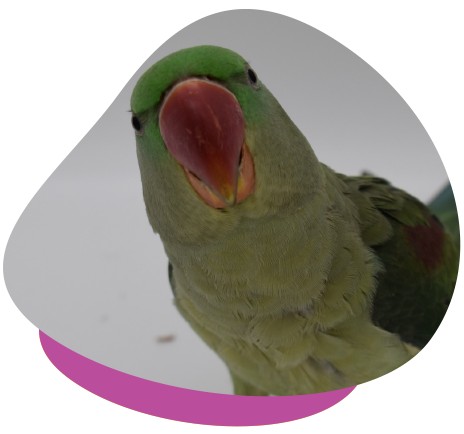
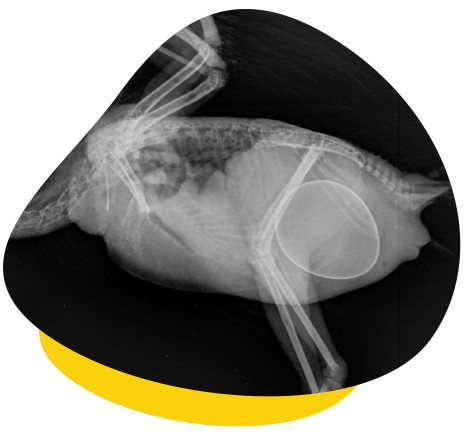
Gastrointestinal Diseases
Birds with an upset gastrointestinal tract will often present for regurgitation, vomiting or diarrhoea. If you see any of these signs, we recommend a consultation as there are many different causes, and if left untreated, you may be putting your bird’s life at risk.
Respiratory Infection
Upper respiratory tract infection is characterised by sneezing or ocular discharge and is common in young birds. Once again, it is highly advised to bring them in for an appointment as there is a range of different causes of upper respiratory tract disease.
Chlamydia
Chlamydia infection is most common in young birds, and this is a serious disease that can be transferred to other birds AND humans.
Foreign Bodies
Ringnecks and Alexandrine parrots are generally very curious and sometimes get themselves into trouble with foreign objects. They commonly eat or chew on items they shouldn’t (jewellery, plastic toys, rope toys, electrical cords etc.). Please get in touch with us if you are concerned that your bird may have eaten or chewed on something it shouldn’t have.

Veterinary Care
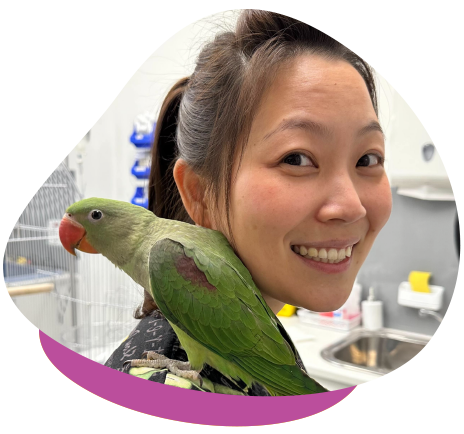
Health Checks
Regular check-ups every 6-12 months are important, as birds are very good at hiding any illnesses that they have. These check-ups allow problems to be detected early before they worsen.
Microchipping
Microchipping is highly recommended, as we see many birds that escape each year. Microchipping allows your contact details to be easily found if your bird is handed into any veterinary clinic or good rescue facility. We use a specialised small microchip that is inserted into your bird’s pectoral muscle; this is a quick, simple procedure that can be performed in a consultation time slot.
You can give your feathered friend a flying start to life and ensure they are receiving the premium veterinary care they need with our FlyStart Package.
If you have any further questions about your parrot, please don’t hesitate to contact your nearest Unusual Pet Vets team.

